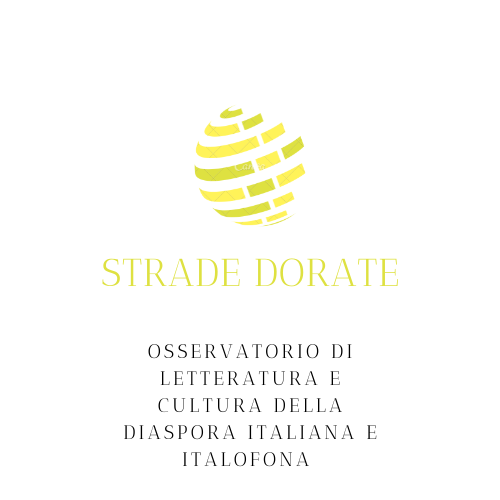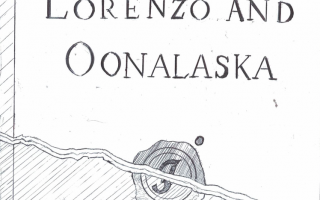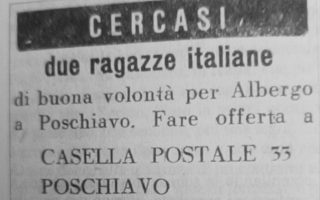by MICHELA VALMORI
In the short story “Salsicce,” the protagonist attempts to eat sausages to feel more Italian. However, this act is laden with negative emotions such as disgust and fear, as the food does not belong to her cultural heritage. Instead, the sausages function as an intrusive object, temporarily transforming her into someone she is not. Within “Salsicce,” food assumes multiple connotations: it is simultaneously an object of desire, something intensely craved, and a symbol to be rejected to protect the protagonist’s cultural roots.
Scego begins her autobiographical narrative by reflecting on her purchase. The anomaly, however, does not lie in the item bought but, in the person, purchasing it: “Me, me, me in person. Me, a Sunni Muslim.” This observation highlights the tension between the object of desire—the sausages—and the expectations imposed on her as a Muslim woman, regardless of her citizenship. The shopowner, Rosetta, who is acquainted with the protagonist, reinforces this tension by asking, after the unusual purchase, “What’s going on, dear, have you converted? Isn’t it a sin for you to eat sausages?” This inquiry puts Igiaba in an uncomfortable situation, prompting her to fabricate an explanation: the sausages are not for her, but for someone else in the neighbourhood. In this exchange, the Italian shopkeeper feels entitled to demand an explanation, whereas the protagonist prefers to withhold the truth. The scene reflects a broader dynamic, where the white woman, presumably Roman, asserts her cultural privilege by questioning the protagonist, thereby highlighting the religious restrictions experienced by a Black woman in a predominantly Christian country.
This is not the first time that Igiaba transgresses the dietary restrictions imposed by her religion, grappling with a sense of shame for the food she desires to consume. She recalls a childhood incident where she accidentally ate pork, and her parents instructed her to regurgitate the rice salad mixed with bits of sausage and pickles; they even discarded the pan in which the dish was prepared. Igiaba’s interest in consuming sausages is less about the taste and more about experimenting with their potentially transformative effects: “If I swallow these sausages one by one, will people understand that I’m as Italian as they are? Exactly like them?” Through this question, Igiaba attempts to negotiate her identity and transform into a new version of herself. The pursuit of sausages, then, becomes a form of transgression, enabling her to feel closer to the culture of the country in which she was raised. In “Salsicce,” Igiaba endeavours to assert herself through food. By purchasing and attempting to eat sausages, she defies not only the religious laws that govern her diet but also the patriarchal constraints associated with her faith. Her desire to “sin,” akin to that of Eve, is less about nourishment and more about the need for self-determination and the establishment of her own identity. Food, in this narrative, becomes a means by which the protagonist navigates between cultures. Yet, as a woman, she struggles to escape the patriarchal systems that entrap both cultures, albeit in different ways.
If food serves as a powerful tool for establishing identity, then by consuming sausages, Igiaba could metaphorically assert her Italian identity and feel more Italian than Somali. In doing so, she attempts to resolve the issue of her contested identity, symbolized by her fingerprints: “Maybe, by eating a sausage, I could change my neutral fingerprints into genuine ‘Made in Italy’ ones, but is this what I really want?” Through this question, the protagonist articulates her ambivalence regarding her complex identity. However, she ultimately cannot bring herself to taste the sausages. She opts to steam them but finds their colour and smell unappealing. Despite her efforts, she vomits after the first bite. The love-hate relationship Igiaba develops with the sausages becomes a metaphor for her identity, and her inability to “digest” them affirms her ambivalent position. Although she feels connected to Italian culture, she fears completely erasing her Somali origins.
In the end, Igiaba decides not to eat the sausages, recognizing that this act will not resolve her identity issues. White Italians will continue to perceive her as an outsider. She acknowledges that she cannot be entirely Italian or entirely Somali but rather a hybrid of the two cultures. “No, I would still be the same—the same mix—and if that bothers anyone, I won’t care in the future!” In “Salsicce,” Igiaba ultimately fails to reconcile her complex identity, caught between her Italian and Somali heritage, but she attempts to negotiate this duality through food. Food, in this context, becomes a critical means of communication, asserting an identity situated between cultures. It is also a potent tool for expressing the emotions that lie at the heart of Scego’s narrative. The act of rejecting the sausages represents an acceptance of her Somali roots, yet the bravery in purchasing them signifies an attempt to resolve her identity crisis and affirm her Italian identity.
During an interview with Radio 3, the protagonist and author stated, “I’m Roman, but I’m unsure about the rest. I don’t like choosing between my identities. I feel I belong to the border generation, the crossroads generation. One is everything and its opposite, Italian and Somali or something else that transcends citizenship.” This statement confirms that her dual identity exists and coexists, despite the complex and multifaceted challenges she faces.
On the cover: illustration by Massimo Carulli
Read it in italian by clicking here




